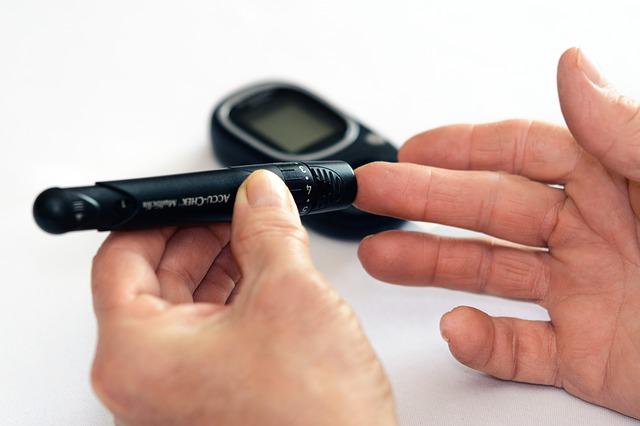Diabetes Warning Signs to Look Out For
Diabetes is a significant medical illness that affects millions of individuals throughout the globe (1). It may lead to a variety of dangerous problems if left untreated. Heart disease (2), renal failure (3), and, finally, blindness (4).
Diabetes is classified into two types: Type 1 and Type 2. Type 1 diabetes, commonly known as insulin-dependent diabetes, often manifests itself in infancy or adolescence. Type 1 diabetes requires daily insulin injections to keep blood sugar levels under control (5). Type 2 diabetes occurs later in life and may be caused by poor diet and exercise habits. (6) As a result, the good news is that it is effectively manageable by lifestyle adjustments. If it does not work, medication may be used. While both forms of diabetes may cause major health problems, early detection and treatment can help patients control the illness and live long healthy lives. In this essay, we shall discuss type 2 diabetes.
Having said that, in order to control and even treat diabetes, early detection is critical to achieving favorable long-term results. The bad news is that many persons with diabetes are unaware of their disease until they develop serious health difficulties. That is why it is important to understand the most prevalent diabetic warning signals. Despite diabetes, you may live a long and healthy life if you get an early diagnosis and treatment.
So, what are the most typical diabetes warning signs?

Hunger
You may be wondering why you occasionally feel hungry after eating a meal. It might be an indication of diabetes. The answer is related to how your body handles glucose or blood sugar. Normally, your digestive system breaks down carbs into glucose and other nutrients after you eat. When glucose enters your bloodstream, it causes your pancreas to produce insulin. Insulin's role is to assist in the movement of glucose from your blood into your cells, where it is utilized for energy.
When you have diabetes, your body either produces inadequate insulin or is unable to use its own insulin as well as it could. As a consequence, glucose remains in your blood rather than being absorbed by your cells. Insulin resistance, which occurs when your cells do not get the energy they need to operate, may trigger hunger and cravings for sugary foods (7). It may also induce weight gain because if glucose is not utilized by the cells, it is stored as fat (8). Whether you're feeling more hungry than normal, see your doctor about getting a blood test to see if you're developing diabetes.
Thirst and increased urination
Increased urination is another indication of type 2 diabetes (9). When glucose levels in your blood rise, your kidneys must work extra hard to filter it out. You will urinate more often as a result of this procedure. Furthermore, excessive amounts of glucose might draw fluid out of your tissues. This occurs because the body attempts to balance the concentration of glucose within and outside of cells and tissues to digest and eliminate the glucose in the urine.
This loss of water may cause dehydration, which makes you thirsty. When you are dehydrated, your body lacks the necessary fluids to operate correctly. As with always feeling hungry, it is important to see a doctor if you are feeling thirsty more often than normal. It might indicate diabetes, but it could also indicate a kidney or urinary infection (9).
Furthermore, since diabetes may cause nerve damage, you may not feel thirsty even though you are dehydrated. Drinking insufficient fluids might lead to significant problems such as renal damage (10) and even heart disease (11). It may potentially lead to death in severe circumstances; thus it must be addressed carefully (12).
Feeling tired
Thirst isn't the only sign of diabetes-related dehydration; you may also feel tired (13). Water is required by the body for every single function: to maintain all of your organs functioning properly and for all bodily fluids such as blood, lymph, and the fluid that bathes every single cell (14). When we are dehydrated, our bodies become sluggish and fatigued. As a result, staying hydrated is critical, especially if you have diabetes. Drink lots of fluids throughout the day, and have a water bottle on hand in case you are thirsty.
Dry mouth, eyes and skin
As previously said, water is required for body fluids. Diabetes-related dehydration might have an impact on fluid levels. Saliva in the mouth is crucial for the earliest stages of digestion as well as for washing microorganisms off the teeth. As a result, diabetics are more prone to gum disease and tooth decay (15).
You may be startled to find that diabetes can cause dry, itchy eyes. This is due to the fact that excessive amounts of glucose might disrupt the nerves around the tear glands and ducts. This prevents the production of tears, which moisten and lubricate our eyes (16). Simply changing one's lifestyle to lower blood glucose levels might alleviate this condition. However, dry eyes may be rather unpleasant, so using eye drops in the meanwhile can make life simpler.
Dry skin is another sign of diabetes-related dehydration. Water is required to maintain our skin fresh and supple. If you detect areas of rough skin that appear scaly and feel itchy and irritated, drink lots of water (17) and moisturize your skin with a light emollient lotion. Of course, dry skin is not the only indication of diabetes. However, if you experience a cluster of these symptoms and a severe thirst, schedule a blood test at your doctor's office. The sooner you learn whether you have diabetes or are on your way to developing it, the sooner you can begin making lifestyle adjustments to conquer it.
Diabetes is a dangerous disorder that, if left untreated, may lead to a range of health issues. It is critical to recognize the warning signs and symptoms so that you can get treatment as soon as possible. If you have any of the symptoms described in this article, please consult your doctor as soon as possible for a diagnosis and treatment. Early detection and treatment may help to avoid significant health consequences from occurring.
References
- Diabetes Prevalence https://www.diabetes.co.uk/diabetes-prevalence.html
- Diabetes, Heart Disease, & Stroke https://www.niddk.nih.gov/health-information/diabetes/overview/preventing-problems/heart-disease-stroke
- Diabetes and Chronic Kidney Disease https://www.cdc.gov/diabetes/managing/diabetes-kidney-disease.html
- Diabetic retinopathy https://www.nhs.uk/conditions/diabetic-retinopathy/
- What Is Type 1 Diabetes? https://www.cdc.gov/diabetes/basics/what-is-type-1-diabetes.html
- Effect of diet on type 2 diabetes mellitus: A review https://www.ncbi.nlm.nih.gov/pmc/articles/PMC5426415/
- Polyphagia – Increased Appetite https://www.diabetes.co.uk/symptoms/polyphagia.html
- New gene found that turns carbs into fat, could be target for future drugs https://news.berkeley.edu/2012/12/06/gene-converts-carbs-to-fat/
- Is Frequent Urination a Sign of Diabetes? https://www.healthline.com/health/frequent-urination-diabetes
- Can Dehydration Affect Your Kidneys? https://www.kidney.org/newsletter/can-dehydration-affect-your-kidneys
- Surprising ways dehydration puts your heart at risk https://timesofindia.indiatimes.com/life-style/health-fitness/health-news/surprising-ways-dehydration-puts-your-heart-at-risk/photostory/85647796.cms
- Hyperglycemic Hyperosmolar State https://www.ncbi.nlm.nih.gov/books/NBK278976/
- Adult Dehydration https://www.ncbi.nlm.nih.gov/books/NBK555956/
- Water: How much should you drink every day? https://www.mayoclinic.org/healthy-lifestyle/nutrition-and-healthy-eating/in-depth/water/art-20044256
- Diabetes, Gum Disease, & Other Dental Problems https://www.niddk.nih.gov/health-information/diabetes/overview/preventing-problems/gum-disease-dental-problems
- Can Diabetes Cause Dry Eyes? https://www.healthline.com/health/dry-eye/dry-eyes-diabetes
- What to know about dehydrated skin https://www.medicalnewstoday.com/articles/dehydrated-skin
The post Diabetes Warning Signs You Should Be Aware Of appeared first on https://gqcentral.co.uk


